By Molly V. (with editing help from mh)
When I first watched Cesur ve Guzel it reminded me of the very beautiful lines from the The Fault In Our Stars (John Green)…
“I fell in love with the way you fall asleep,
Slowly,
And then all at once.”
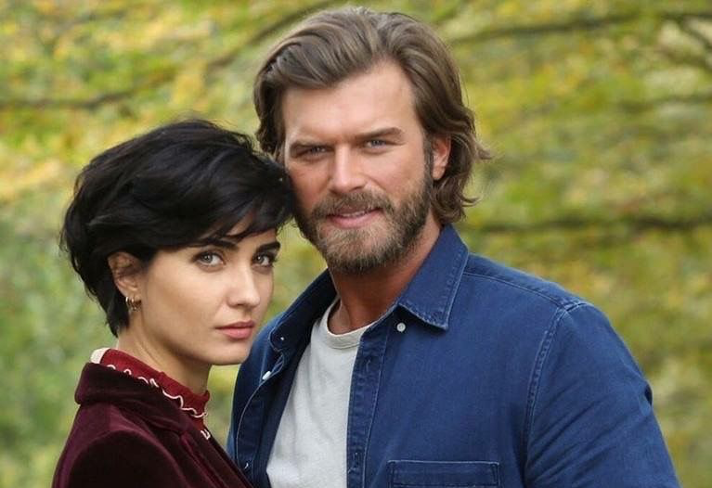
Cesur ve Guzel is a visual feast, with an abundance of intertwined plotlines. Initially bewildered by the many characters, my attention was caught by the easy charm and effortless smile of Cesur, the protagonist. As the story unfolded from his viewpoint, by the third episode I was rooting whole-heartedly for Cesur and Suhan, their love story and for Cesur to succeed in his mission. I had fallen in love with the beautiful yet dangerous universe this story painted.
The Characters
Cesur ve Guzel is a fascinating, multi-layered story of characters who are tied together by a tragic crime in their past. It is a story set in the wildly beautiful and enchanting hamlet of Korludag, which looks like time might have forgotten it. Of the many characters, only some of them are integral to the story. Here is a quick introduction.

Tahsin Korludag (Tamer Levent), is an oppressive, vicious, criminal-minded local landlord who has committed many crimes in the past and yet with great energy and enterprise has set up this small hamlet of Korludag that he rules with clear contempt for the law of the country. One of the most interesting characters and brilliantly enacted by Tamer, the man is excessively narcissistic, driven by his own demons of the past. However, the apple of his eye is his daughter, who is the only person he loves without reservation.

Cesur Alemdaroglu (Kivanc Tatlitug) is the outsider, the charming suave stranger who walks into the town with a mysterious goal. He believes that his father and grandparents have been killed by Tahsin, and that he is robbed of his heritage by Tahsin. He is fighting for justice but at the same time tries to bring in a breath of democracy and modernity to this hamlet/province enslaved by oppression. He is an effortless leader and a strategist.
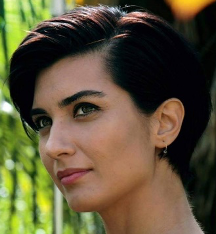
Suhan Korludag (Tuba Büyüküstün), is the extremely beautiful daughter of Tahsin, who is jolted out of her complacency and self- assurance by the charming and dangerous presence of Cesur, to be plunged into moral questions she never knew existed. She is a curious mix of a woman who is still a bit emotionally stunted, yet strong enough to fight for her own principles. She is a reserved and watchful woman who keeps her emotions under iron control, struggling not to love because she cannot risk getting hurt. Her response to any problem is to withdraw her love completely, using it as a weapon.
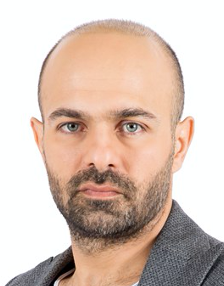
Korhan Korludag, (Erkan Avci) is the son of Tahsin, elder brother of Suhan, and a kind, trusting young man, lacking in finesse and wisdom. He is constantly ridiculed by his father and made to feel a failure in every aspect of his life. Korhan is an expressive, heart-on-the-sleeve man; he loves to the extent that he gets punished for his love. A wonderful elder brother and a thoroughly misused husband, he is nevertheless one of the heroes of the story.
There are only three incorruptible relationships in this bitter story: the bond between Suhan-Korhan (both survivors of their parents’ poor marriage), the bond between Cesur and his mother (a lovely woman who raised him on her own since his father’s death), and the bond between Cesur and Suhan.
Memories
Along with these characters, there is one overpowering brooding presence, which is almost a character of its own. We are made aware of this character every second of the story and it is the power of memories. Each and every character grapple with his memories or lack of them. There is a dark past, and it reveals itself bringing mayhem and death.
We have Tahsin, the most amoral, unrepentant villain who usurps someone else’s memories to create a past for himself. He presumably kills Cesur’s grandparents because he wishes to have a life history worthy of his ideal. His apathy towards their death is shocking but it makes absolute sense to the diseased mind of Tahsin. He has no guilt in proudly installing them as his fictional parents, giving himself a memorable past.
Mihirban Madam, on the other hand, has been left at the altar by Tahsin and tormented by those memories, chooses to spend her life trying to get him punished for his villainy. Yes, Mihriban has a dead husband, a son, a business, a social life, but for all purposes she might have been wearing that wedding dress Tahsin left her in, so single-minded is her devotion to the destruction of Tahsin. Miss Havisham, anyone?
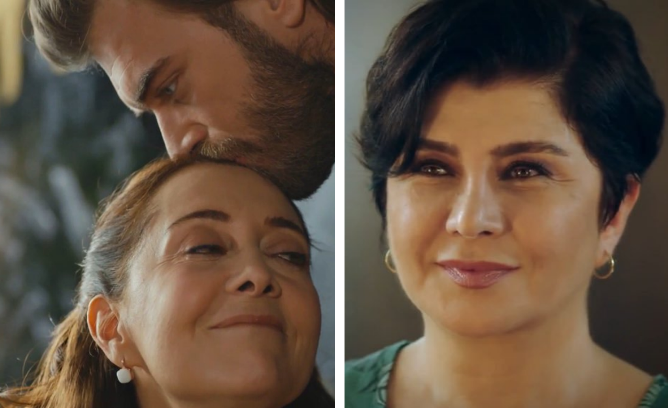
At the other pole is Cesur’s mother, losing her memory to Alzheimer’s in bits and pieces, only retaining the emotions associated with those memories.
There is Cesur, the peaceless protagonist, who takes on the mantle of all the memories of his mother, his father and his own childhood to piece together his destroyed past and find purpose in restoring justice.
Korhan has his own memories of the night when Cesur’s father was killed and remains haunted by assumptions.
And into this cast of people with tormented memories is Suhan, the character whose memories are dominated by the loss of her mother and the anger she feels with the lack of closure. Of the cast of characters, Suhan is the relatively benign beholder of memories, who is actually the tabula rasa, the clean slate , who becomes the battleground for this battle extraordinaire.
There are plenty of other characters, all with their back stories, but some of them are quite superfluous and I wish dizis would get over the obsession with characters who are not integral to the story. I understand they are needed to justify the length of the shows; but as dizis change their focus to include international markets, they will need to understand how a direct story makes viewing a more intimate experience for the audience.
An impossible love?
The main theme of this show is not ‘love’, but, ‘love despite vengeance’. Can a great love thrive within the claws of hatred? Can two people trust each other, when one of them has vowed to destroy the other’s father? Love is so messy, even in normal circumstances. How does one compartmentalize emotions such that actions within one does not affect another? How does one plot a rival’s downfall and yet the heart cries out his daughter’s name with desire to become lost in her?
Cesur
The love story of Cesur and Suhan is impossible, not just because they are their parents’ children but also because they are extremely different people. Cesur is physically courageous like his name, and like his parents, extremely courageous emotionally too. He expresses his attraction for Suhan and never steps back from pursuing it. Some might say that it was a part of his plan and that is also true. But for the deeply conscientious and emotional man he is, the plan is only an appendage to his love for Suhan. He never tries to fight it or shy away from expressing it. Unlike Tahsin, love is not a power play for him.
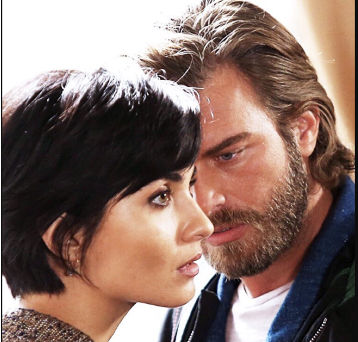
There is a clear point where you can see Cesur’s flirtatious admiration for Suhan takes an important turn; when she kisses him as he comes to steal the picture (Episode 3) and later on as his friends make fun of the incident, he is shown unwilling to participate. Also, a sterling scene is when he is challenged by Banu that at the end of the revenge he will fall in love with Suhan and he refuses to take the bet.
That, to me, is what Cesur is all about – a man so deeply convinced about his passions, he never fools himself or others by untruths. His intentions regarding Suhan become so clear despite his plan for vengeance, that it becomes easy for the audience to root for all the things he vies for.
Props to Kivanc Tatlitug for portraying Cesur’s despondency when he senses his love is not reciprocated. He brings out the hopelessness of impossible love so well, his hurt at seeing her flirt with Bulent, the sense of incompleteness as she repeatedly leaves him alone to support her father. It reminded me of these beautiful lines by Pablo Neruda:
“So I wait for you like an empty house
Till you will see me again and live in me
Till then my windows ache.”
Suhan
Suhan is a difficult character to read. In parts, crystal clear, in parts, an enigma. A stunningly beautiful woman, she is used to admiration from her small circle of family and friends and takes the respect/homage as a birth right. She feels intrigued by Cesur and the attraction between them is guessed correctly by most of the members of this small clique. Yet, when the grand dilemma arises between her role as a daughter or a lover, she repeatedly sides with her father.
In fact, siding with her father is an instinct with her, as she blames her mother for her father’s disloyalty to his marriage. And so Suhan has constructed herself in the likeness of her father, perhaps to justify her mixed feelings towards her mother and the role of a woman.
In their relationship, we find most of the heavy hauling of the relationship is done by Cesur. She is quick to anger, slow to forgive, ready to blame and punish Cesur. In fact, at times, the relationship seems quite hopeless because she is ready to abandon Cesur at any point where her loyalty to her father is called in question.
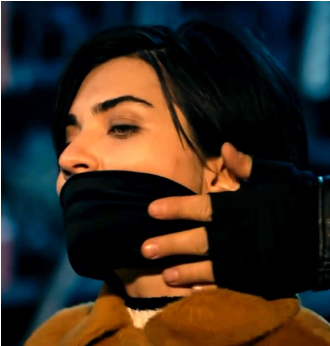
Suhan sometimes frustrates me as her sense of unforgiving grievance against Cesur makes it a difficult love story. However, when we circle back to what I said about actually Suhan being the battlefield where this battle is fought between Cesur and Tahsin, her coldness to Cesur becomes more understandable. She is drawn into a battle where she doesn’t know the reasons and yet is the one who pays the heaviest emotional price.
Also, when looked through the lens of a daughter and someone who has emotionally sanitized herself to help deal with her losses, her earlier coldness is better understood. As the show progresses, we see her accepting her womanhood more freely, with more proactive and feminine expressions of her feelings. Nevertheless, I do think that the screenplay may have faltered in humanizing Suhan. Being a woman, a wife and a daughter, I can understand how badly it hurts when your father is proved to be less than a hero. Yet, for a character who faces such huge choices between good and evil, between love and duty, between truth and lies, the character should have shown more of a mental struggle than she does.
Actors’ Interpretations
Kivanc
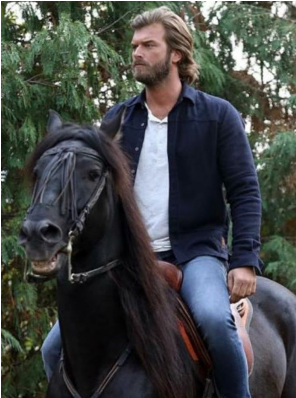
Kivanc Tatlitug brings a very emotional and honest appeal to his role as Cesur. There is not a moment he falters in his interpretation of Cesur. The role, in comparison to most Turkish dizis, demands physicality and Kivanc is in fine fettle here, showcasing his horse-riding skills effortlessly.
Special mention needs to be made of how well he has been styled all through the show. His Cesur in the first half is a soft-hearted and eager lover, his longish hair with his check or solid block shirts and jeans an excellent complement to his character. The Cesur post leap after his mother’s death is harder, more driven and barely keeping a lid on his sorrow. The easy charm of the first half, the man who laughs easily with twinkling eyes is replaced by this man whose eyes frequently show the enormous hatred he feels for Tahsin and his burning revenge.
Watch this video to hear Kivanc talk about his role in the show:
Tuba
Tuba is a rare beauty. She is undoubtedly competent as an actor but I do wonder a bit at her styling. Her slightly butch style in the first half could have done with a bit of softness but it may be a conscious choice to fit in with her stoic way of dealing with life, driven by self-preservation. It is striking though how they have used her styling throughout the story to emphasise her emotional awakening. Her gelled short haircut in the beginning goes to a slightly unkempt softer more layered hair as she revels in her femininity more and more towards the end.
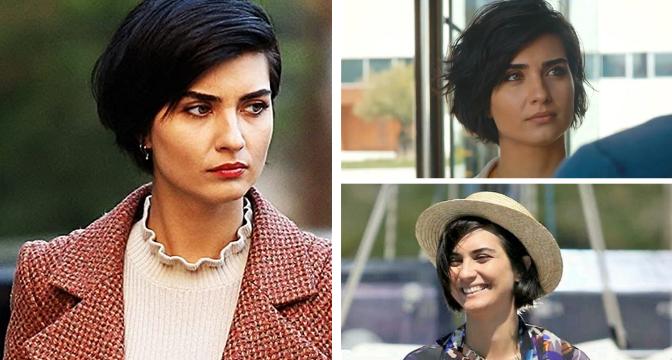
Hear in Tuba’s words, about her take on Suhan:
A hauntingly beautiful but flawed love story
As a recent viewer, I was swept away by the forcefulness of the story and performances but was disappointed to learn that the show’s ratings impact falls short of expectations. Upon reflection, I have a theory for why it wasn’t a raging success.
Unlike American TV, in Turkish stories, romance forms the main story set in difficult circumstances. Cesur Suhan’s love story set in the backdrop of past crimes, revenge and darkness does seem an impossible romance to us. How can a woman, a dutiful daughter fall in love with her father’s nemesis? How can a dutiful son, come to claim his heritage, love the daughter of a man who killed his father? It requires a loving and forgiving heart and it requires a love which overwhelms you, a passion that is greater than all your fears.
This is where the screenplay of Cesur ve Guzel falters because it spends inordinate time to weave the backstories of drama and revenge. If the story had focused more on the moral dilemma of Suhan, her inner fight with her instinctive empathy towards Cesur and her personal thoughts, this story would have become more personal. Her expressed feelings lack that sense of desperation that unrequited love demands.
The scene where Suhan truly succeeds in giving in to this desperation is the lovely divorce scene and her violent reaction of pressing the car horn because she is so heartbroken he actually agreed to her whims of divorce.
As a viewer, it is the first time we are given a glimpse into the depth of her love for Cesur. Another beautiful scene is when Cesur is shot in the arm and as she bandages his wound, her eyelashes tremble with unshed tears which she doesn’t allow to fall till Cesur tells her not to hold back.
The most lyrically romantic scene is where Suhan questions Cesur as to why he still thinks of them as “we” even though they are divorced (Episode 20). Cesur, again uses poetry to reply to Suhan, and says “Ayrilik da Sevdaya Dahil” (t.”Because parting is also a part of love”) -Attila Ilhan
This ethereal poem is also used as the background song to the heartbreak after the divorce, sung in the dulcet tones of Zuhal Olcay here:
It is this courage to acknowledge one’s love and passion even after a break up which makes Cesur a character to cherish. How I wish mothers would bring up their children to be as emotionally secure and brave.
Deserving Story
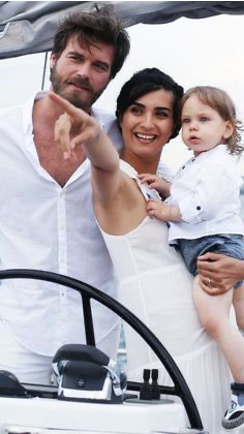
To me, it seems it was the divorce which actually frees Suhan to permit herself to love Cesur without holding back. Even then, it is still only in the last episode, when she is kidnapped, nearing death and faced with a possibility that she would never see Cesur again, that she says “Seni Seviyorum” to him. And that, in a way, is the tragedy of being the lovely Suhan. She is more her father’s daughter than she realises. It is just as well that Cesur is a lover who is supremely confident and expressive enough for both of them.
Herein lies the shortcoming of this story. Audiences are used to love stories unrolling as love stories. In Cesur Ve Guzel, there is very little physical intimacy. More time is spent in showing Cesur and Suhan warring each other. There is very little sense of desperation of the lovers. The love story is subdued and the revenge saga takes over, which may confuse the audience. Yet it is an amazingly nuanced story, with top notch acting, great music score and lovely locales. International accolades deservedly include an International Emmy nod, where critics also appreciated the layers built into the script. It won an award at the Seoul International Drama awards. It is one of those stories one can introspect on for a long time, and it certainly deserves to be on Netflix with proper subtitling.
Copyright by North America TEN and Molly V.
Why cant we still see the english subtitled shows on this site? Truly was the best!